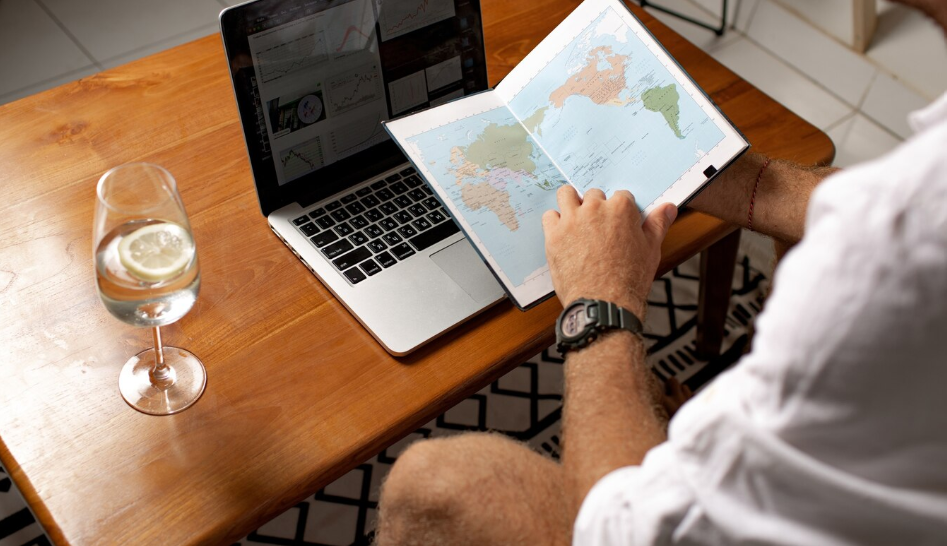Digital Nomad Guide to Europe: Work and Roam Freely
Europe continues to be one of the most attractive regions in the world for digital nomads. With its rich cultural tapestry, modern infrastructure, and relatively short travel distances between countries, it’s no wonder that remote professionals are flocking to cities from Lisbon to Budapest. But living and working across borders also comes with important considerations — from visa requirements to cost of living and connectivity. This guide explores what you need to know to successfully work and roam freely throughout Europe as a digital nomad.
Visas and Legal Requirements
One of the first steps to working in Europe as a digital nomad is understanding your visa options. Fortunately, many countries now offer dedicated digital nomad visas or freelancer permits. Here are a few notable options:
- Portugal: Offers the D7 visa and a Digital Nomad Visa, ideal for remote workers with proof of passive or remote income.
- Estonia: A pioneer in digital governance, Estonia’s Digital Nomad Visa allows remote workers to live and work in the country for up to a year.
- Spain: Spain launched its own digital nomad visa in 2023, offering residency for up to five years with tax incentives.
- Croatia: Offers a one-year residence permit to remote workers earning income from abroad.
It’s essential to verify the visa requirements for each country you plan to visit, especially if you intend to stay longer than the 90-day Schengen limit for non-EU passport holders.
Top Cities for Digital Nomads
Europe boasts an array of digital nomad-friendly cities, each with its own personality, lifestyle, and pricing. Here are some top picks:
- Lisbon, Portugal: Affordable, sunny, and home to a thriving nomad community. Great coworking spaces and a robust café culture.
- Barcelona, Spain: A perfect mix of beach and business, with top-notch food and fast internet.
- Berlin, Germany: A hub for creatives and entrepreneurs with a diverse, international vibe.
- Budapest, Hungary: Budget-friendly with a strong tech scene, historical charm, and thermal baths.
- Prague, Czech Republic: Stunning architecture, stable infrastructure, and excellent cost of living for remote professionals.
Other honorable mentions include Tallinn, Tbilisi, Athens, and Warsaw. When choosing a base, consider cost of living, local language, internet speed, visa options, and social scene.
Cost of Living Across Europe
Cost of living in Europe varies greatly between Western and Eastern regions. Cities like Paris and Amsterdam are significantly more expensive than Belgrade or Sofia. A digital nomad in Lisbon might spend around €1,500–2,000 per month, while in Bucharest, that number could drop to €1,000 or less.
Key cost considerations include:
- Rent and utilities
- Workspace or coworking subscriptions
- Transportation and travel between countries
- Dining, groceries, and entertainment
Budgeting properly ensures a smoother experience and prevents unnecessary financial stress while working abroad.
Connectivity and Remote Work Essentials
Stable, high-speed internet is non-negotiable for digital nomads. Most European cities offer excellent Wi-Fi infrastructure, even in smaller towns. Look for accommodations with fiber connections and consider mobile hotspots as a backup.
Coworking spaces have become widespread and offer much more than just desk space. They foster networking, community, and structure for those needing a professional atmosphere. Leading platforms like WeWork, Mindspace, and Impact Hub have branches throughout Europe.
Tools such as VPNs, cloud storage, communication apps (Zoom, Slack), and project management software are also essential for maintaining productivity and privacy.
Banking, Payments, and Taxes
Managing finances while traveling across borders can be complex. European digital banks like N26, Revolut, and Wise offer multi-currency accounts, minimal fees, and mobile management — making them excellent choices for nomads.
Tax obligations depend on your residency status and the duration of stay. If you spend more than 183 days in one country, you may be considered a tax resident. It’s highly recommended to consult with a cross-border tax advisor to avoid double taxation or unexpected liabilities.
Balancing Work and Travel
Being a digital nomad isn’t just about changing locations — it’s about finding rhythm and balance. Burnout can happen when switching cities too often or failing to disconnect from work. Here are a few tips for sustainability:
- Adopt a “slow travel” approach: stay at least 1-2 months in each location to reduce stress and build community.
- Use productivity techniques like time-blocking and the Pomodoro method to stay focused.
- Take advantage of weekends to explore, but allow downtime to recharge.
- Invest in health insurance and maintain a consistent exercise or wellness routine.
The more structure and routine you create, the more fulfilling your experience as a digital nomad will be.
Learning New Languages as an Expat: Strategies for Quick Success
Language is key to unlocking deeper experiences in Europe. While English is commonly spoken in major cities, learning the local language accelerates integration, boosts confidence, and opens up social and professional opportunities.
Here are proven strategies for learning quickly:
- Use immersion: Change your phone and app settings to the local language, listen to local radio or podcasts, and read headlines daily.
- Language apps: Duolingo, Babbel, Rosetta Stone, and Memrise offer fun, bite-sized lessons for all levels.
- Local classes: Enroll in community-based language courses or private tutoring to improve pronunciation and grammar.
- Practice daily: Even 15 minutes per day can yield noticeable progress.
- Make mistakes: Don’t be afraid to speak. Locals appreciate the effort and often help you improve.
Being proactive in learning the language not only makes day-to-day life easier but also enriches your cultural immersion.
Stay Connected for More Travel and Lifestyle Inspiration. For more insights into travel, culture, and lifestyle tips, follow me on
@salvadorordorica. If you’re seeking professional translation and localization services to enhance your global ventures, visit
The Spanish Group — your trusted partner in bridging cultures worldwide.



